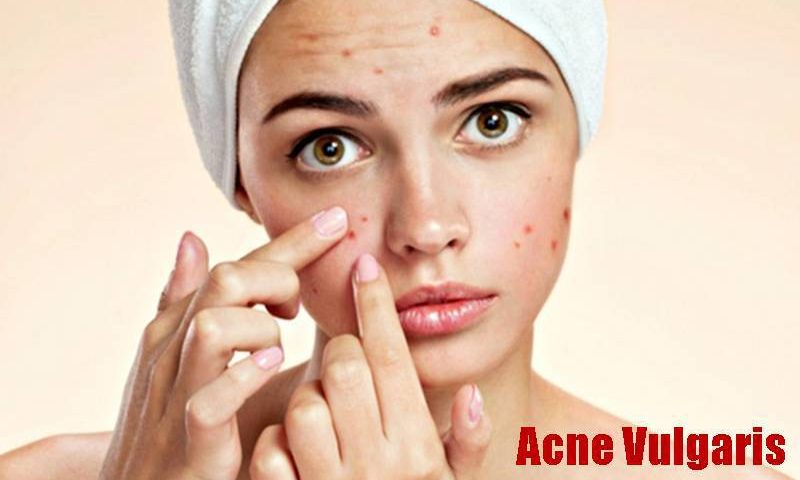Treatment and Drugs for Acne
If over-the-counter (nonprescription) products haven’t cleared up your acne, your doctor can prescribe stronger medications or other therapies.
A dermatologist can help you:
- Control your acne
- Avoid scarring or other damage to your skin
- Make scars less noticeable
Acne medications work by reducing oil production, speeding up skin cell turnover, fighting bacterial infection or reducing inflammation — which helps prevent scarring. With most prescription acne drugs, you may not see results for four to eight weeks, and your skin may get worse before it gets better. It can take many months or years for your acne to clear up completely.
The drug your doctor recommends depends on the type and severity of your acne. It might be something you apply to your skin (topical medication) or take by mouth (oral medication). Often, drugs are used in combination. Pregnant women will not be able to use oral prescription medications for acne.
Talk with your doctor about the risks and benefits of medications and other treatments you are considering.
Topical medications
These products work best when applied to clean, dry skin about 15 minutes after washing. You may not see the benefit of this treatment for a few weeks. And you may notice skin irritation at first, such as redness, dryness and peeling.
Your doctor may recommend steps to minimize these side effects, including using a gradually increased dose, washing off the medication after a short application or switching to another medication.
The most common topical prescription medications for acne are:
Retinoids: These come as creams, gels and lotions. Retinoid drugs are derived from vitamin A and include tretinoin (Avita, Retin-A, others), adapalene (Differin) and tazarotene (Tazorac, Avage). You apply this medication in the evening, beginning with three times a week, then daily as your skin becomes used to it. It works by preventing plugging of the hair follicles.
Antibiotics: These work by killing excess skin bacteria and reducing redness. For the first few months of treatment, you may use both a retinoid and an antibiotic, with the antibiotic applied in the morning and the retinoid in the evening. The antibiotics are often combined with benzoyl peroxide to reduce the likelihood of developing antibiotic resistance. Examples include clindamycin with benzoyl peroxide (Benzaclin, Duac, Acanya) and erythromycin with benzoyl peroxide (Benzamycin).
Dapsone (Aczone): This gel is most effective when combined with a topical retinoid. Skin side effects include redness and dryness.
Oral medications
Antibiotics: For moderate to severe acne, you may need oral antibiotics to reduce bacteria and fight inflammation. Choices for treating acne include tetracyclines, such as minocycline and doxycycline.
Your doctor likely will recommend tapering off these medications as soon as your symptoms begin to improve or as soon as it becomes clear the drugs aren’t helping — usually, within three to four months. Tapering helps prevent antibiotic resistance by minimizing undue exposure to these medications over a long time.
You will likely use topical medications and oral antibiotics together. Studies have found that using topical benzoyl peroxide along with oral antibiotics may reduce the risk of developing antibiotic resistance.
Antibiotics may cause side effects, such as an upset stomach and dizziness. These drugs also increase your skin’s sun sensitivity. They can cause discoloration of developing permanent teeth and reduced bone growth in children born to women who took tetracyclines while pregnant.
Combined oral contraceptives: Combined oral contraceptives are useful in treating acne in women and adolescent girls. The Food and Drug Administration approved three products that combine estrogen and progestin (Ortho Tri-Cyclen, Estrostep and Yaz).
The most common side effects of these drugs are headache, breast tenderness, nausea, weight gain and breakthrough bleeding. A serious potential complication is a slightly increased risk of blood clots.
Anti-androgen agent: The drug spironolactone (Aldactone) may be considered for women and adolescent girls if oral antibiotics aren’t helping. It works by blocking the effect of androgen hormones on the sebaceous glands. Possible side effects include breast tenderness, painful periods and the retention of potassium.
Isotretinoin: This medicine is reserved for people with the most severe acne. Isotretinoin (Amnesteem, Claravis, Sotret) is a powerful drug for people whose acne doesn’t respond to other treatments.
Oral isotretinoin is very effective. But because of its potential side effects, doctors need to closely monitor anyone they treat with this drug. The most serious potential side effects include ulcerative colitis, an increased risk of depression and suicide, and severe birth defects.
In fact, isotretinoin carries such serious risk of side effects that women of reproductive age must participate in a Food and Drug Administration-approved monitoring program to receive a prescription for the drug.



